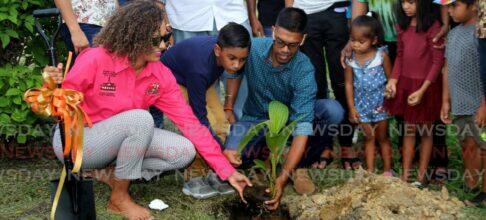Perturbed by rising cases of rape, incest, teenage pregnancies and maternal mortality, legal practitioners and advocates have called for urgent reforms in Nigeria’s legal system on sexual and reproductive health rights to curb the trend.
This was the epicentre of a one-day knowledge and experience sharing session on Sexual and Reproductive Health Rights and Development in the African Region: Jurisprudence and Emerging Legal Framework on Safe Abortions, held in Enugu, organised by the Women Advocacy Research and Documentation Centre (WARDC).
Country Vice President of the International Federation of Women Lawyers (FIDA) Nigeria, Madam Elina Martins, said the organisation has continued to encounter disturbing cases of rape, defilement, forced early marriages and teenage pregnancies in the course of its work of defending vulnerable groups.
According to her, many young girls suffer severe health complications from early pregnancies, are abandoned by spouses, or resort to unsafe self-administered abortions, which often lead to death.
“We cannot pretend these issues are not happening because of culture. Many young girls are self-medicating and dying from illegal abortions, while others are being arrested and jailed. We need to have honest conversations and find practical legal and policy solutions,” Martins said. She disclosed that FIDA has already presented two bills on surrogacy to the National Assembly but lamented the slow legislative progress, urging lawyers to continue engaging with policymakers. Founding Director of the Women Advocacy Research and Documentation Centre (WARDC), Dr Abiola Afolabi, said the dialogue was necessary to address gaps in Nigeria’s laws on abortion, especially in cases of rape and incest.
“Maternal mortality statistics in Nigeria are alarming, and many of the deaths are preventable. Our office alone recorded 13 cases of incest in the past six months. Yet the law is silent on what happens when survivors of incest or rape become pregnant,” Afolabi stated. She explained that WARDC has developed a draft bill to expand legal grounds for safe abortion and called for its review by the legal community before it is presented to policymakers. Presenting the draft model safe abortion bill, Associate Professor of Human Rights and Criminal Justice at the University of Lagos, Dr Abiola Akintayo, explained that it seeks to clarify and broaden conditions for safe termination of pregnancy in Nigeria. He noted that the existing law only permits abortion when the life of the mother is in danger, but that the new bill would allow wider access, including termination within the first 12 weeks upon request, and between 13 and 24 weeks in cases of rape, incest, or health risks.
“Countries that restrict abortion record higher cases of unsafe abortions. Where access is broadened, unsafe practices reduce. What we are trying to achieve is to balance morality, tradition and religion with the urgent need to protect women’s lives,” Akintayo said. The bill also prescribes penalties, including a 14-year jail term for anyone who terminates a pregnancy without a woman’s consent. Akintayo added that Nigeria’s current approach is health-based rather than rights-based and urged lawmakers to align with global standards to save lives.
“We cannot pretend these issues are not happening because of culture. Many young girls are self-medicating and dying from illegal abortions, while others are being arrested and jailed. We need to have honest conversations and find practical legal and policy solutions,” Martins said. She disclosed that FIDA has already presented two bills on surrogacy to the National Assembly but lamented the slow legislative progress, urging lawyers to continue engaging with policymakers. Founding Director of the Women Advocacy Research and Documentation Centre (WARDC), Dr Abiola Afolabi, said the dialogue was necessary to address gaps in Nigeria’s laws on abortion, especially in cases of rape and incest.
“Maternal mortality statistics in Nigeria are alarming, and many of the deaths are preventable. Our office alone recorded 13 cases of incest in the past six months. Yet the law is silent on what happens when survivors of incest or rape become pregnant,” Afolabi stated. She explained that WARDC has developed a draft bill to expand legal grounds for safe abortion and called for its review by the legal community before it is presented to policymakers. Presenting the draft model safe abortion bill, Associate Professor of Human Rights and Criminal Justice at the University of Lagos, Dr Abiola Akintayo, explained that it seeks to clarify and broaden conditions for safe termination of pregnancy in Nigeria. He noted that the existing law only permits abortion when the life of the mother is in danger, but that the new bill would allow wider access, including termination within the first 12 weeks upon request, and between 13 and 24 weeks in cases of rape, incest, or health risks.
“Countries that restrict abortion record higher cases of unsafe abortions. Where access is broadened, unsafe practices reduce. What we are trying to achieve is to balance morality, tradition and religion with the urgent need to protect women’s lives,” Akintayo said. The bill also prescribes penalties, including a 14-year jail term for anyone who terminates a pregnancy without a woman’s consent. Akintayo added that Nigeria’s current approach is health-based rather than rights-based and urged lawmakers to align with global standards to save lives.
Participants, including judges, magistrates and lawyers, engaged in robust discussions on how to balance human rights, public health, morality and cultural values in framing a law that would safeguard women while maintaining societal values.















